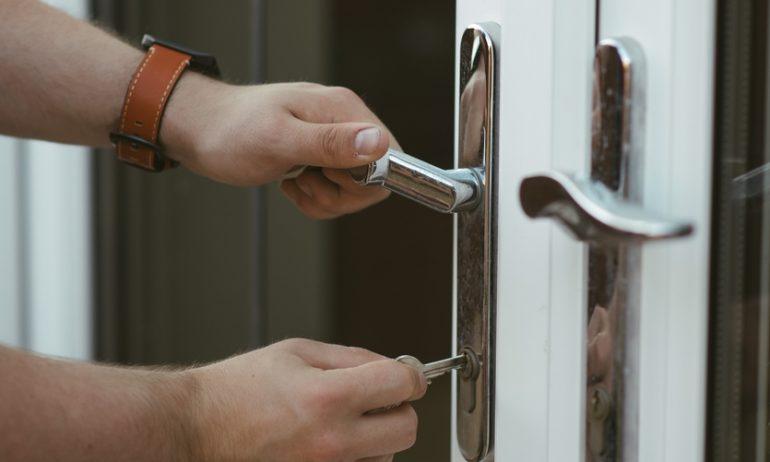First-time home buyer grant programs are one way to make buying a house in New York more affordable. Rather than saving up the cash all on your own, first-time home buyer grant programs provide money you can use for a down payment and closing costs, among other things.
What is a first-time home buyer grant?
First-time home buyer grants are available through a variety of entities, including city and county governments, community development organizations and nonprofits. In many cases, the money doesn’t have to be repaid.
Each grant program has its own terms, conditions and eligibility requirements, but in general, applicants must:
-
Be a first-time home buyer.
-
Take a home buyer education course.
-
Satisfy income requirements.
-
Satisfy purchase price requirements.
-
Occupy the house as your primary residence.
-
Purchase in an approved location.
Grants aren’t the only programs for first-time home buyers in New York, of course. The State of New York Mortgage Agency, or SONYMA, offers affordable mortgages and other assistance options you may find helpful.
First-time home buyer grants available across NY
1. Housing Opportunities Foundation grant (statewide)
Offered through the New York State Association of Realtors and the Community Foundation for the Greater Capital Region, this grant program provides $2,000 to help first-time home buyers cover their down payment and closing costs. The grant is a gift, and if awarded, there’s no obligation to repay it. The grant is available only to buyers in New York state who are working with a real estate agent. Grants are awarded through a monthly lottery of qualified applicants. Those who are denied can apply again the next month.
Grant programs in NYC boroughs
2. HomeFirst Down Payment Assistance (all NYC boroughs)
The HomeFirst program offers up to $40,000 in assistance for down payment or closing costs. Assistance is provided in the form of a forgivable loan, meaning no payment is due as long as buyers occupy the home for 10 consecutive years. The property can be a one- to four-unit family home, condominium, or a cooperative, and it must be located in one of New York City’s five boroughs. In addition to meeting general eligibility requirements, applicants must be able to contribute some of their own funds toward the purchase.
3. NeighborhoodLIFT program (Brooklyn, Bronx and Queens)
The NeighborhoodLIFT Program offers up to $20,000 in down payment assistance. Funds are provided in the form of a five-year forgivable loan, and a portion is forgiven each year the buyer occupies the home. The remaining balance is due immediately if the buyer moves before five years have passed. Although the NeighborhoodLIFT program isn’t limited to first-time home buyers, all applicants must attend an approved home buyer education course. The property must be located in Brooklyn, Bronx or Queens.
4. “HOME” grant (Brooklyn)
Offered through Neighborhood Housing Services of Brooklyn, this grant program provides up to $20,000 in assistance for prospective home buyers. Funds are provided by the New York State Homes and Community Renewal (HCR) agency. Only homes in Brooklyn are eligible.
Grant programs in the Capital District
5. Home Acquisition Program (Albany)
Offered through the Albany Community Development Agency, this program provides buyers with a percentage of their home’s purchase price — up to $14,900 — for down payment and closing cost assistance. Funds are provided in the form of a prorated, deferred loan with a maximum term of five years. Buyers are required to repay the grant if they sell or transfer the property, or pass away within the first five years of owning it. The property must be located within the city of Albany.
6. HOME Down Payment Assistance Grant Program (Albany County)
This program is designed to help offset the cost of buying a home in Albany County. The Albany County Rural Housing Alliance, or ACRHA, provides funds in the form of a 10-year forgivable loan. The amount of assistance provided depends on applicant need and income. In addition to meeting general eligibility requirements, applicants must be able to contribute $1,500 of their own funds. The property’s purchase price cannot exceed $190,000, and the home must be located outside the city of Albany.
7. Home Buyer Incentive Program (Troy)
Administered by the Troy Rehabilitation and Improvement Program (TRIP), this program provides up to $20,000 in down payment and closing cost assistance. In addition to meeting general eligibility requirements, applicants must have $1,500 saved in an account for three consecutive months and the property must be located within the city of Troy.
8. Homebuyer Program (Rensselaer County)
This program, administered by the Troy Rehabilitation and Improvement Program (TRIP), offers up to a $20,000 grant for down payment and closing costs. Applicants must have $1,500 saved in an account for three consecutive months and also meet general eligibility requirements. Only properties within Rensselaer County, but outside the city of Troy, are eligible.
9. First-Time Home Buyer Program (Colonie)
This grant program helps first-time buyers purchase a single-family home, condo or townhouse in the town of Colonie, village of Colonie and village of Menands. “The grant amount ranges between $14,000 and $25,000 depending on income and family size,” Jennifer Kennedy, an aide at the Colonie Community Development Department, said in an email. The buyer will have to repay the grant if they don’t use the home as their primary residence for the period of time decided at closing. In addition to meeting general eligibility requirements, applicants will need to have a savings account that shows an average balance of $1,500.
Grant programs in western NY
10. Homeownership Program (Lockport)
Funded through the New York State Governor's Office for Small Cities, this grant program provides up to $19,000 to help cover a down payment, closing costs and other expenses related to buying a house. If the property is sold, transferred, foreclosed on or no longer occupied before the 11th year of ownership, a portion of the grant may have to be repaid. Grant funds can only be used to buy a single or two-family home within the city of Lockport, and the purchase price cannot exceed $80,000.
11. Hometown Housing Program (Hamburg)
Offered through the Hamburg Department of Community Development, this grant program provides first-time home buyers with up to $10,000 in down payment assistance. In addition to meeting general eligibility requirements, applicants must agree to occupy the property for 10 years. If buyers sell the house or change the title in any way before the 10-year mark, the grant must be repaid in full. Applicants must also be able to contribute at least 5% of the total cost of the home. Only single-family homes within the town of Hamburg and the villages of Blasdell and Hamburg are eligible.
Grant programs in central NY
12. Homsite Mortgage Assistance Program (Auburn and Cayuga County)
Offered in cooperation with the city of Auburn, this program provides grants of up to $3,000 to help qualified first-time home buyers cover down payment and closing costs. Funds are provided in the form of a deferred loan, meaning no repayment is required as long as buyers own and occupy the home for five years. In addition to meeting general eligibility requirements, applicants must contribute $500 of their own funds. They’ll also need a signed purchase offer for a home located within the city of Auburn or Cayuga County. The purchase price of the home must be $110,000 or less.
13. Purchase/Rehabilitation Program for First-Time Home Buyers (Cortland County)
Offered through the Cortland Housing Assistance Council and the Empire Development Corporation, this grant program provides funds that first-time home buyers can use to reduce closing costs and fix up their new home after purchase. In addition to meeting general eligibility requirements, applicants must buy a single-family home located within Cortland County.
14. Ithaca Neighborhood Housing Services ‘Due On Sale’ Assistance (Tompkins County)
This grant program provides up to $30,000 for down payment and closing costs. Funds are provided in the form of a no-interest loan, but the full amount must be repaid if the property is sold. In addition to meeting general eligibility requirements, the property must be located in Tompkins County (but outside the city of Ithaca), cost $165,000 or less and pass an inspection by Ithaca Neighborhood Housing Services.
15. Home HeadQuarters Closing Cost Assistance (Syracuse)
This grant program provides first-time home buyers with up to $4,000 to pay closing costs. Assistance is in the form of a deferred loan that is forgiven if the buyer lives in the home for at least five years. In addition to meeting general eligibility requirements, buyers must contribute at least $500 to the purchase. The home must be located in Syracuse and not cost over $120,000.
Grant programs in the North Country/Mohawk Valley
16. Housing Assistance Program of Essex County (Clinton County)
This grant program provides up to 5% of the mortgage principal to be used as a down payment, pay closing costs or correct issues with the property. Although the program name includes Essex County, funding is currently restricted to homes within Clinton County, HAPEC housing counselor Penny Daniels said in an email. Funds from this grant program can also be used to build a house on land the applicant owns.
17. Down Payment Assistance (Utica)
Offered through the HomeOwnership Center, this grant program provides first-time home buyers with $6,500 to use for a down payment or closing costs. Funds are provided in the form of a fully forgivable loan. As long as applicants maintain ownership of the property for five years, no repayment is required. In addition to meeting general eligibility requirements, buyers have to make a personal contribution of $2,000. Only properties in specific parts of Utica are eligible.
Your next step
Think you’re a good fit for one of the New York first-time home buyer grants listed above? Take the next step by contacting the organization that offers the funds. Ask about additional eligibility requirements and make sure you fully understand the terms and conditions before you apply. You may also want to ask for guidance on choosing a mortgage lender that’s known to work with the grant program you’ve chosen.





